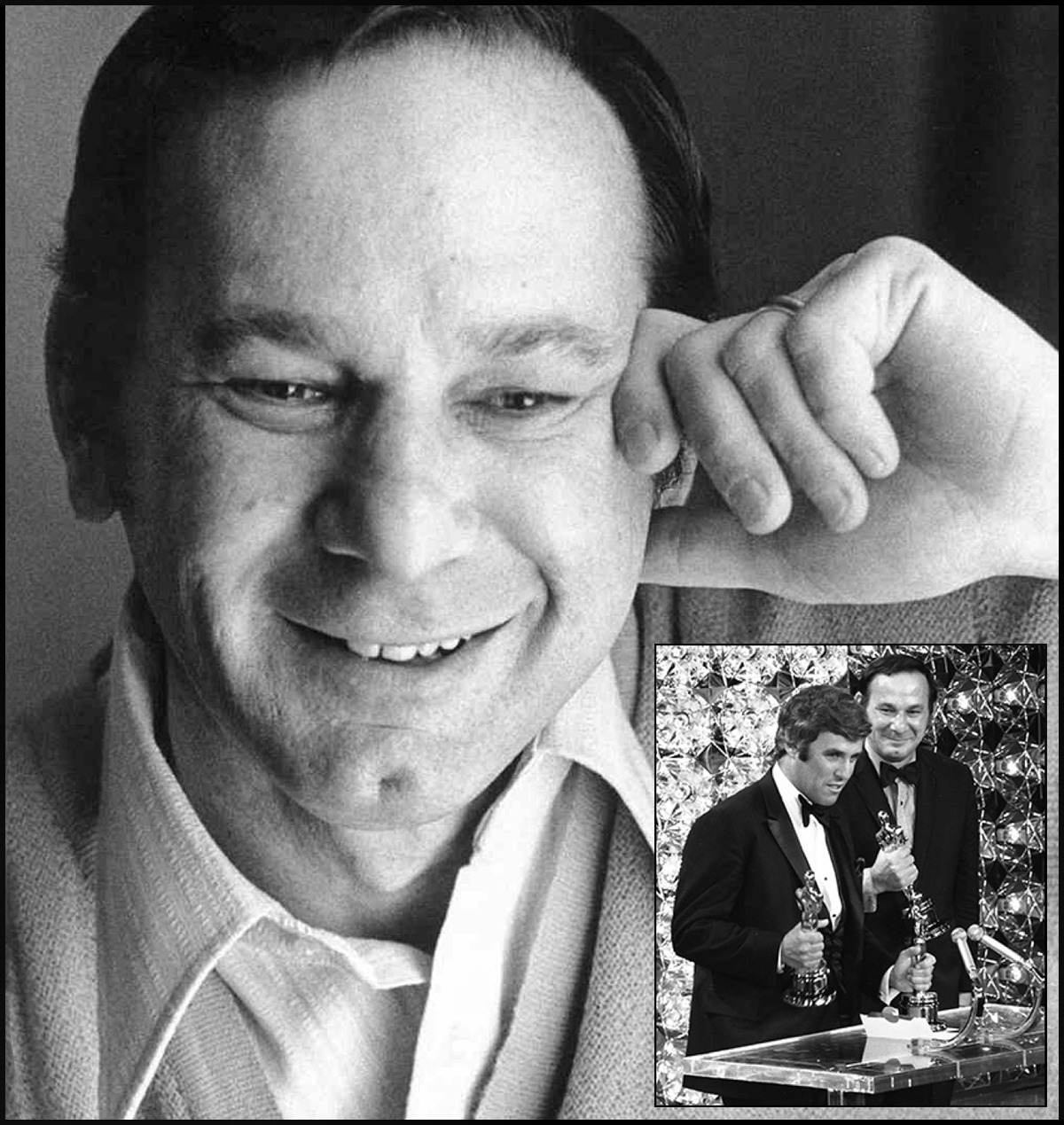 David co-partnered Musically with Burt Bacharach from 1957 Through 1973
David co-partnered Musically with Burt Bacharach from 1957 Through 1973
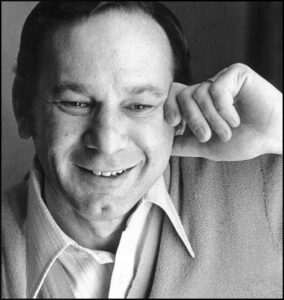 HAL DAVID, WHO DIED SEPT. 1 AT THE age of 91, was a lyricist with a unique understanding of how to partner a singer and a song. For all the adventure longtime partner Burt Bacharach infused in the melodies of the tunes they wrote together, David was an equal when it came to instilling a pared-down (and instantly memorable) sophistication in a lyric. Though his biggest hits came in the ’60s, he was a throwback to the pre-rock’n’roll days of Tin Pan Alley, and a more than capable A&R man.
HAL DAVID, WHO DIED SEPT. 1 AT THE age of 91, was a lyricist with a unique understanding of how to partner a singer and a song. For all the adventure longtime partner Burt Bacharach infused in the melodies of the tunes they wrote together, David was an equal when it came to instilling a pared-down (and instantly memorable) sophistication in a lyric. Though his biggest hits came in the ’60s, he was a throwback to the pre-rock’n’roll days of Tin Pan Alley, and a more than capable A&R man.
It’s a point Bacharach himself makes in an appreciation piece published in the Los Angeles Times, recounting the story of the song “What The World Needs Now Is Love,” which Bacharach initially presented to the songwriting duo’s muse, Dionne Warwick, who rejected it.
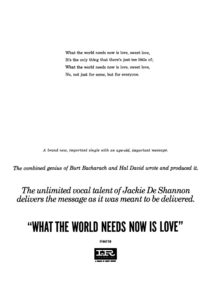
When Bacharach and David were working with Jackie DeShannon in 1965, nearly a year after the song was written, David reminded Bacharach of its existence. “When she started to sing it, I knew that Hal had made the right move,” Bacharach wrote. “I would have left it in the drawer.”
“I don’t think I ever spent as much time on any song as that one,” David says in Alec Cumming’s liner notes to Rhino Records’ boxed set on Bacharach, There’s ‘Always Something There To Remind Me.’ “The chorus, lyrically, was clear to me, but it took me a couple of years to find out what those verses should say.”
It hit No. 7 on the Billboard Hot 100 in 1965 and became the rare anthem that parents, teachers and clergy could sing with children, a humanistic message that could be read as anti-war at a time when Vietnam protests and musical tastes were a significant part of the generation gap.
That was part of David’s genius. Bacharach and David squarely fit in with the older set, but their records were embraced by all ages. From 1963 to mid-1971, there were few months that they didn’t have a song high on the Hot 100, usually sung by Warwick.
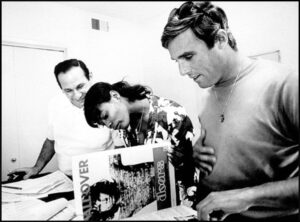 David combined the romanticism and emotional complexity of the great Broadway composers with the modern day directness of ’60s AM radio in such songs as “Alfie,” “Don’t Make Me Over” and “Twenty Four Hours From Tulsa.” Others like “The Look Of Love” and “This Guy’s In Love With You” have become cornerstones for vocalists looking to extend the Great American Songbook into the second half of the 20th century.
David combined the romanticism and emotional complexity of the great Broadway composers with the modern day directness of ’60s AM radio in such songs as “Alfie,” “Don’t Make Me Over” and “Twenty Four Hours From Tulsa.” Others like “The Look Of Love” and “This Guy’s In Love With You” have become cornerstones for vocalists looking to extend the Great American Songbook into the second half of the 20th century.
Born in New York on May 25, 1921, David followed the path of an older brother, Mack, who became a successful songwriter with “I Don’t Care if the Sun Don’t Shine” for Patti Page. David started Seven Seas” by Sammy Kaye in 1949 and “Bell Bottom Blues” by Teresa Brewer in 1954. Coming of age when pop music was in a period of transition, he developed skills as a big band writer.
His 14-year partnership with Bacharach started in 1957 in New York at the Brill Building offices of Paramount Pictures’ music publishing arm, Famous Music. The duo steered dear of the burgeoning teen market and wrote for adult stars who, like David, were in their late 30s and early 40s.
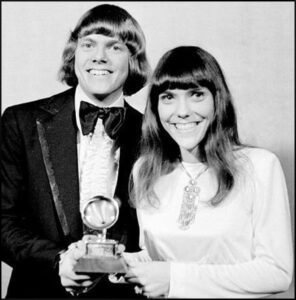 They made history first in the United Kingdom, becoming the first songwriters to have two consecutive No. is: Michael Holliday’s “The Story Of My Life” and “Magic Moments” by Perry Como. An early breakthrough, while a modest hit, was Chuck Jackson’s 1960 single “I Wake Up Crying,” a rendition that was, at turns, operatic and vulnerable, a stellar interpretation of David’s lyric against Bacharach’s Lieber & Stoller-inspired arrangement.
They made history first in the United Kingdom, becoming the first songwriters to have two consecutive No. is: Michael Holliday’s “The Story Of My Life” and “Magic Moments” by Perry Como. An early breakthrough, while a modest hit, was Chuck Jackson’s 1960 single “I Wake Up Crying,” a rendition that was, at turns, operatic and vulnerable, a stellar interpretation of David’s lyric against Bacharach’s Lieber & Stoller-inspired arrangement.
Chart-wise, the team clicked in 1962 with “(The Man Who Shot) Liberty Valance” by Gene Pitney. It was intended as the theme for John Ford’s film, but rejected by the director. America, though, fell in love with it, pushing it to No. 4 on the Hot 100.
Soon thereafter, David and Bacharach were full-time partners as Jackson, Jerry Butler, Jack Jones and Dusty Springfield took their songs up the R&B and pop charts in the years preceding the British Invasion. Most significantly, the singer they used for their demo sessions, Warwick, joined the Scepter Records roster and, beginning in late 1962, started an indelible string of hits that expressed elegant anguish, including “Don’t Make Me Over,” “Anyone Who Had A Heart” and “Walk On By.”
It was Herb Alpert who would give Bacharach and David their first No. 1. When CBS asked Alpert to star in a TV special in 1968, the musician came up with the idea of singing to his wife. After reviewing more than 50 submissions, Alpert selected Bacharach and David’s “This Guy’s In Love With You.” The day after the special aired, the network was flooded with calls from viewers asking where they could buy the song. The single was released the next day and would eventually spend four weeks at No. 1.
While “What the World Needs Now” needed a year to gestate, another song needed seven years. In 1963, Richard Chamberlain recorded “(They Long To Be) Close to You,” but it wasn’t until the Carpenters made it their first Bacharach-David recording in 1970 that it would hit No. 1, staying there for four weeks.
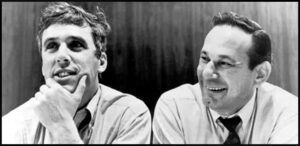 Less than a month before “Close to You” hit No. 1, David and Bacharach won their one and only Academy Award, writing “Raindrops Keep Falling On My Head” for B.J. Thomas to sing in “Butch Cassidy and the Sundance Kid.” The duo, at the time, had a built up a significant body of work by writing songs for films, among them “Alfie” for Cher, “What’s New Pussycat?” for Tom Jones, “My Little Red Book” for Manfred Mann and “Casino Royale” for Alpert and the Tijuana Brass. And on Broadway, Bacharach and David converted Billy Wilder’s “The Apartment” into the hit musical “Promises, Promises,” producing another of their signature songs, “I’ll Never Fall in Love Again.”
Less than a month before “Close to You” hit No. 1, David and Bacharach won their one and only Academy Award, writing “Raindrops Keep Falling On My Head” for B.J. Thomas to sing in “Butch Cassidy and the Sundance Kid.” The duo, at the time, had a built up a significant body of work by writing songs for films, among them “Alfie” for Cher, “What’s New Pussycat?” for Tom Jones, “My Little Red Book” for Manfred Mann and “Casino Royale” for Alpert and the Tijuana Brass. And on Broadway, Bacharach and David converted Billy Wilder’s “The Apartment” into the hit musical “Promises, Promises,” producing another of their signature songs, “I’ll Never Fall in Love Again.”
Sadly, it was a film that led to their breakup. The two had a falling out after the disastrous effort in 1973 to create musical version of “Lost Horizon,” the 1937 Frank Capra film. Warwick sued them for not supplying her with material and they didn’t write together again for almost 20 years, reuniting in 1992 on “Sunny Weather Lover.”
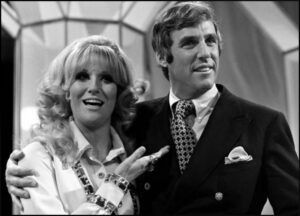 David’s best-known work with other collaborators came in 1984 when Julio Iglesias and Willie Nelson had a hit with “To All The Girls I’ve Loved Before, “a co-write with Albert Hammond.
David’s best-known work with other collaborators came in 1984 when Julio Iglesias and Willie Nelson had a hit with “To All The Girls I’ve Loved Before, “a co-write with Albert Hammond.
David’s post-Bacharach years were spent doing charitable work, collecting art and, from 1980 to 1986, serving as president of ASCAP. At that time, ASCAP programs to educate and connect composers were in their infancy and the performing rights organization was creating its first wave of dealings with cable TV.
David was inducted into the Songwriters Hall of Fame, the Nashville Songwriters Hall of Fame and, earlier this year, received, with Bacharach, the fourth Gershwin Prize from the Library of Congress.
David is survived by his wife, Eunice; two sons; and three grandchildren. His first wife, Anne, died in 1987. END
By Phil Gallo | Additional reporting by Fred Bronson
Credit: Published in Billboard, September 15, 2012. Billboard, 2012. All rights reserved. Copyrighted material
A MCRFB Note: In part, this article is just as much a Burt Bacharach piece as it was a tribute to Hal David, who passed away in September 2012. In adding further to this Billboard obituary, David’s co-composer partner, Burt Bacharach, just days ago passed away on February 8, 2023.
We honor their legacies today.

![]()

